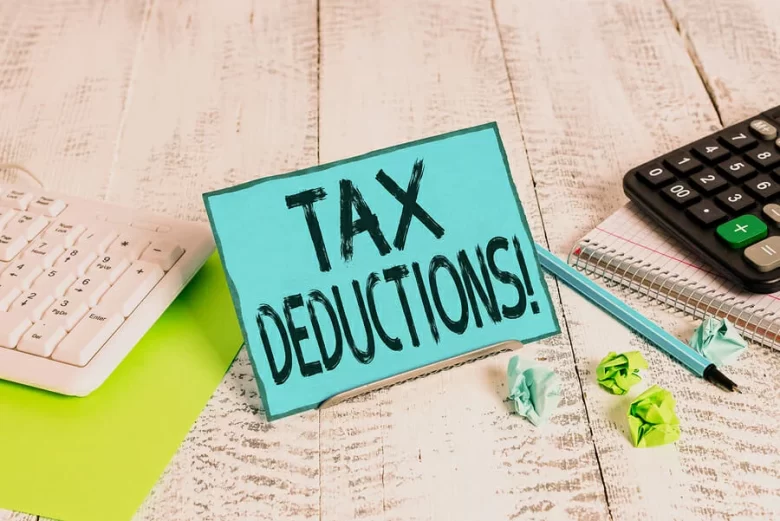Are you tired of paying high taxes every year? Are you looking for ways to reduce your tax burden in a legal and effective way? You are not alone. Maximizing your tax deductions is a smart financial move that can help you save money and put more money in your pocket. In this article, we will explore several strategies that can help you do just that.
1. Keep Accurate Records
The basis for maximizing tax deductions is maintaining an impeccable record. Whether you’re a business owner or an individual taxpayer, keeping track of your expenses, income, and financial transactions is critical. This document serves as evidence when you need to claim the deduction.
2. Determine Tax Deductions
One of the most important steps in reducing your tax liability is determining the deductions for which you are eligible. This depends on your specific situation. Common deductions include:
- Mortgage interest: If you are a homeowner, mortgage interest is generally tax deductible.
- Charitable Contributions: Donations to qualified charities are generally deductible from your taxable income.
- Business expenses: If you are self-employed or a small business owner, you can deduct various business-related expenses, such as office supplies, travel, and equipment.
- Medical expenses: Some of your out-of-pocket expenses, such as health insurance premiums or doctor visits, may be deductible.
3. Take Advantage of Tax Credits
Tax credits are an effective way to reduce your taxes. Unlike deductions, which reduce your taxable income, tax credits directly reduce the amount of tax you owe. Some common tax credits include:
- Child Tax Credit: If you have dependent children, you may qualify for this credit.
Earned Income Tax Credit: This credit is designed to help low- and moderate-income individuals and families. - Education credits: If you are pursuing higher education, credits such as Lifelong Learning Credit or American Opportunity Credit may be helpful.
4. Retirement Planning
Contributions to a retirement account, such as a 401(k) or individual retirement account (IRA), are tax deductible. Not only can these contributions help you save for the future, they can also reduce your current tax liability.
5. Seek Professional Advice
Navigating the complex tax world can be overwhelming. Seeking advice from a certified tax professional is invaluable. They can help you identify deductions and credits you may be missing out on and ensure you take advantage of your tax-saving opportunities.
6. Stay Informed About Changes in Tax Laws
Tax laws change frequently and it is critical to stay abreast of these changes to maximize your deductions. Keeping an eye on the latest information from the Internal Revenue Service (IRS) and consulting with a tax professional can help you adapt to the new tax rules.
7. Take Advantage of Tax-saving Investments
Smart investing can also help you minimize your tax liability. Consider investments such as tax-efficient index funds, exchange-traded funds (ETFs), or tax-exempt municipal bonds. These options can provide you with income while minimizing the impact on your taxes.
8. Bundled Deductions
If you have flexibility in determining the timing of your expenses, consider bundling your deductions. For example, if you are anticipating large medical expenses and are close to meeting the threshold for deducting medical expenses, you can plan for the costs during the year when you can maximize your tax savings.
9. Start a Small Business
Starting a small business or taking on a side hustle can provide a variety of tax reduction opportunities. Business-related expenses, including home office expenses, travel expenses, and supplies, are deductible. Additionally, you may qualify for the qualified business income (QBI) deduction if you meet certain requirements.
10. Stay Organized all year Round
Don’t wait until tax season to gather your financial information. By staying organized throughout the year, you can take advantage of every potential deduction and avoid missing out on valuable opportunities.
11. State Deductions
Don’t forget to research state-specific deductions and credits. These may vary by state, and you may find other options to reduce your income taxes.
12. Consider Professional Tax Software
If you prefer to handle your taxes yourself, consider using professional tax software. These tools can help you with the tax filing process and ensure you don’t miss out on any deductions or credits you qualify for.
13. Check your Finances Regularly
Your financial situation changes every year. It is important to regularly review your financial situation to determine whether a new deduction or discount applies to your situation. Life events such as marriage, the birth of a child or a job change can affect your tax situation.
14. Stay on Top of Tax Deadlines
Delays in filing or paying taxes can result in penalties and interest. Mark important tax deadlines on your calendar and consider setting reminders to ensure you file your tax returns on time.
15. Save your Previous Tax Returns
It is important to keep copies of previous tax returns. They serve as a reference for past deductions and credits and help you identify areas where you can improve your tax savings strategies.
Conclusion
In summary, maximizing your tax deductions requires careful planning, record-keeping, and a thorough understanding of your financial situation. By following these strategies and staying informed about tax laws, you can reduce your tax burden and keep more of your hard-earned money in your pocket. Remember, being proactive and informed is the key to successful tax planning. So take control of your financial future now.
FAQs
1. What is a tax deduction?
A tax deduction is an expense or item that you can deduct from your gross income to reduce taxable income. Deductions reduce your taxable income, which lowers your overall tax liability.
2. How do I determine which deductions I am eligible for?
To determine which deductions you qualify for, first consult the IRS guidelines or consult a tax professional. Eligibility for the deduction depends on your specific financial situation, such as whether you are a homeowner or business owner or if you have certain expenses, such as medical bills or charitable donations.
3. Are tax credits the same as tax deductions?
No, tax credits and tax deductions are not the same. Tax deductions reduce your taxable income, while tax credits directly reduce the amount of tax you owe. Tax credits are generally more valuable because they reduce your tax liability by the same amount.
4. What tax deduction information do I need to keep?
You must keep records of all income, expenses, and financial transactions related to your taxes. This includes receipts, bank statements, W-2s, 1099s, and any documentation related to the deductions you want to claim.
5. Can I claim a deduction if I use tax software to file my taxes?
Yes, tax software usually guides you through claiming the deduction. She will ask you questions about your financial situation and expenses to determine which deductions you are eligible for. However, it is important to ensure that the information you provide in the software is accurate and complete.



